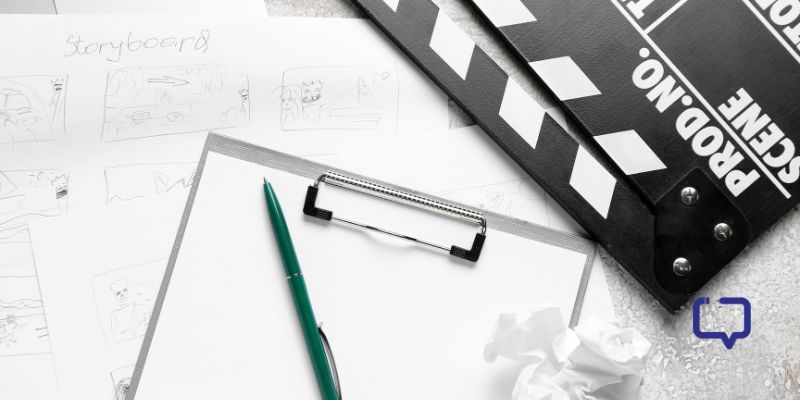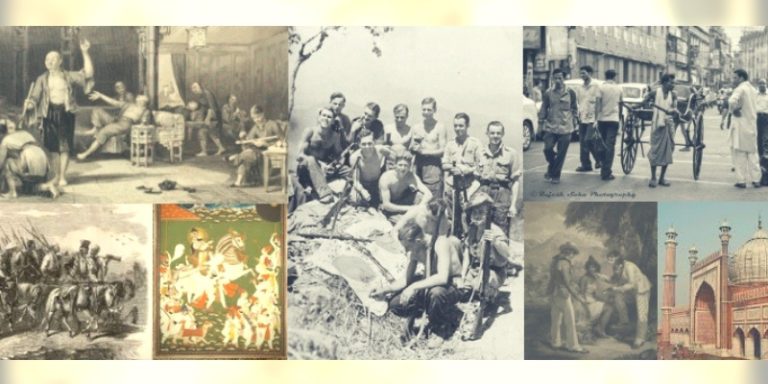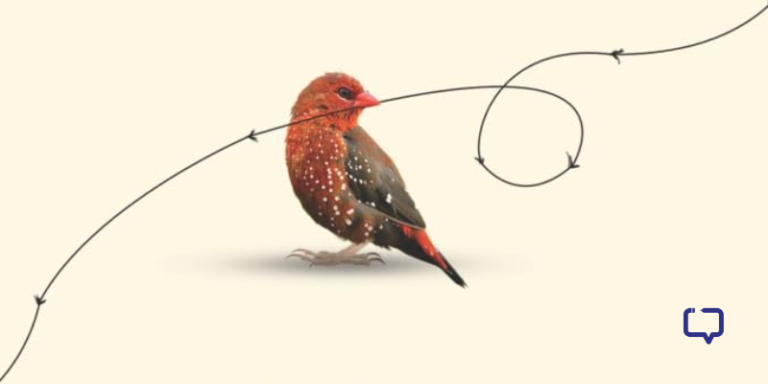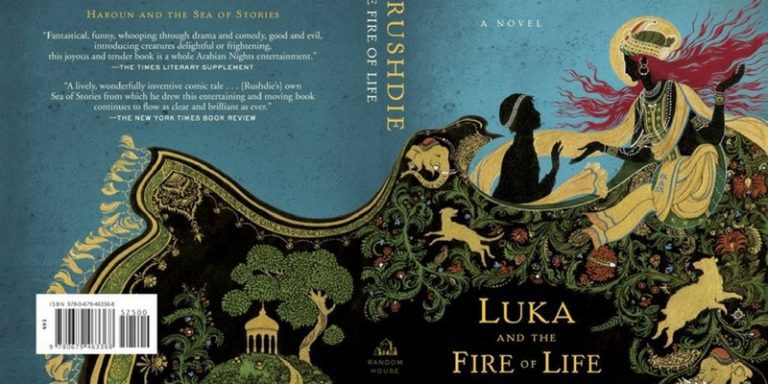Writing for books is different from writing for the screen. The key difference is screenwriting is a little more methodical and you may need some specific resources to materialise your vision as a screenwriter. Worry not! Whether starting your first screenplay or refining your skills, or transitioning from books to screen, our guide has all the must-have screenwriting tools. We have writing software options, idea-generation techniques, script formatting resources, and more! So, let’s see how
Essential Screenwriting Tools: Writing Software

The right writing software can make all the difference to your writing experience. Most writers prefer using their devices to write for a higher speed and flexibility. Different writing software for screenwriters have different pros and cons, so experiment to find what suits you best. Some popular screenwriting tools for writing include:
1. Celtx
One of the more comprehensive writing software for screenwriters, Celtx also provides tools for pre-production planning, character development, and collaboration. You’ll find support for various formats here, like TV, stage play, and audio play. All these features make it one of the most flexible options for screenwriters.
2. Fade In
If you prefer a more user-friendly interface, Fade In is perfect. It converts your scripts into professional-looking documents for directly submitting or sharing. You’ll also find support for various formats like stage play and graphic novels.
3. Highland 2
This software uses Fountain, a screenwriting format similar to Markdown, for easy integration with other text editors. The formatting also makes it easier to format and style. You also get tools for outlining and organising scenes for a smooth screenwriting process.
4. Final Draft
An industry-standard software, Final Draft handles the technical formatting details to let you focus on your story. It has features for collaboration, outlining, and beat-boarding, making it a complete and professional solution. Despite its higher price point, it’s a popular choice among industry professionals.
5. Kit Scenarist
Developed in Russia, Kit Scenarist is one of the best screenwriting tools. After all, it’s free, supports various formats, and has numerous features. You get features for character development, outlining, and collaboration, alongwith a simple interface with support for formats like stage play and graphic novels.
Important Screenwriting Tools: Idea Generation

Almost every great screenplay needs that spark of inspiration. The key is to remain open-minded and draw from a variety of sources in your life. But sometimes, come what may, it’s hard to find that. Lucky for you, there are screenwriting tools that help at every part of their idea generation journey:
1. Brainstorming
Mind-mapping screenwriting tools can organise and reorganise your ideas quickly. Whether you’re outlining or developing your screenplay, these tools simplify your thinking process. For stock templates, collaborative features, and presentation capabilities, dedicated mind-mapping tools are handy. You can opt for SpiderScribe, WiseMapping, and MindMeister.
They let you visualise ideas and track story elements smoothly. For a more comprehensive experience, there are tools like Scrivener and OmniOutliner. Along with mind-mapping features, they also have features for outlining, organisation, and editing. You’ll also get multiple screen writing examples here to get inspired and build your story.
2. Prompts and Exercises
Several websites provide engaging writing prompts and exercises to fuel your imagination and get those creative juices flowing. Websites like Writers Write, No Film School, and The Story Department are great resources for improving your storytelling skills. Prefer a physical experience? Try our UnBlock diary to say goodbye to your writer’s block. With over 100 writing prompts, complemented with illustrations, it’s the perfect solution to hone your writing skills. Drop a mail to speaktous@purplepencilproject.com and grab your copy today!
3. Observation and Research
Sometimes, inspiration is lying near the tiny flowers at the corner of your colony lane. So, take a walk, watch the people around you, start a conversation with a stranger, go into new rabbit holes on the internet, who knows where your next story is lying?
4. Story Structure Templates
For those who prefer structure in their storytelling, books and blogs are useful. Give your screenplay a solid foundation with previous screen writing examples and proven templates. There are different screenplay structure templates like Save the Cat structure and Harmon’s Story Circle, and you can choose one per your desired difficulty level and preference.

Necessary Screenwriting Tools: Script Formatting
Without proper formatting, your story can be difficult to read and evaluate by industry experts. The right formatting makes a good impression and ensures a smooth reading experience. If you’re not well-versed with the different formats, worry not, for there are plenty of screenwriting tools available.
1. Screenwriting Software
The software options we’ve covered above can help format your story. With tools like Final Draft, Fade In, and Celtx, you get inbuilt formatting tools per industry standards. You don’t have to worry about the intricate formatting tools and let these software do the job.
2. Formatting Guides
If you love a more hands-on approach, you can use online formatting guides and tutorials. Books like The Hollywood Standard by Christopher Riley and The Screenwriter’s Bible by David Trottier comprehensively explain the nitty-gritty of screenplay formatting.
Recommended Reads: 10 Recommended Books on Indian Movies for Cinephiles
3. Online Templates
You can get free downloadable or customisable templates through websites like Squibler and StudioBinder. You can start writing immediately without worrying about formatting hassles through these websites.
4. Screenwriting Courses
If you’re serious about mastering every aspect of screenplay writing, why not join a screenwriting course? You’ll get guidance and feedback from experts, which can boost your learning curve.
Basic Screenwriting Tools: Research and References
Research is uncompromisable! It doesn’t matter whether you’re writing a period piece set in the 18th century or a fantasy epic set in a galaxy far, far away, research is important. You want to create a believable world and you need the right tools for that. Let’s check some basic screenwriting tools for getting your research and references right:
1. Online Databases and Archives
Websites like IMDb, Wikipedia, and Archive.org are invaluable screenwriting tools for screenwriters collecting data. Want to learn more about a historical event? Trying to understand specific scientific concepts? You’ll likely find a wealth of data on these websites.
2. Books and Articles

The ever-reliable companions, books are the best way to get specific and accurate information. Visit your local library or browse through online bookstores to find books relevant to your story.
3. Documentaries and Interviews
Getting first- and second-hand accounts and perspectives can add authenticity to your storytelling. Watching documentaries and conducting interviews with experts in their fields are great approaches to collecting such perspectives.
4. Modern Technology
With virtual and augmented realities, you can travel across the world from your sofa. Why not use it for your stories? You can explore real-world settings and understand your subject matter more intricately by employing VR and AR software as screenwriting tools.
Primary Screenwriting Tools: Collaboration and Feedback Platforms
Writing is a solitary activity. It doesn’t necessarily have to be. Collaboration and feedback can help you stay accountable while connecting and getting feedback from your fellow writers. By expanding your network with the right screenwriting tools, you essentially increase your chances of getting noticed (and becoming successful):
1. Online Forums and Communities
Platforms and forums like Reddit’s r/Screenwriting, Stage 32, and DoneDealPro help you connect with other writers and get advice on any stage of your writing process.
2. Collaboration Tools
If you’re a team of writers, you can use platforms like Google Docs, Dropbox Paper, and Slack to collaborate in real time. You can even work on the same document and exchange feedback simultaneously.
3. Writing Groups and Workshops
A writing group or workshop is an ideal place to get constructive criticism and improve your skills while developing relationships with fellow writers.
4. Networking Events
Industry conferences and film festivals are also great spots to find and connect with agents and producers to boost your career.
Key Screenwriting Tools: Time Management and Productivity Tools

Let’s face it: the modern world is a hotch-potch of distractions. From your smartphone to your smart TV to a new flashy headline, everything is clashing and struggling to get our precious attention. Therefore, to keep focus and discipline are easier said than done. Productivity apps and techniques can be useful screenwriting tools for improving your schedules easily. Here’s how:
1. Time Tracking Apps
You can try tools like Toggl, RescueTime, and Focus@Will to track time and improve your productivity by creating distraction-free time zones.
2. Task Management Tools
Choose tools like Todoist, Trello, and Asana to organise your tasks and set deadlines easily. You can choose from simple lists and more sophisticated systems per your preference and needs.
3. Pomodoro Technique
Popularised by Francesco Cirillo in the late 1980s, this method breaks your work into short and focused intervals of 25 minutes under this technique with short breaks in between. You can adopt this technique easily through apps like Focus Booster and Tomato Timer.
4. Distraction Blockers
Do you keep finding yourself itching to pick up your phone every 5 minutes? Tools like Freedom, Cold Turkey, and StayFocusd block and limit access to distractions during designated sessions.
Elementary Screenwriting Tools: Industry Insight and Education Resources
To develop your screenwriting and storytelling skills, regardless of experience, you can use suitable resources. Some essential screenwriting tools to always keep learning are:
1. Blogs
You can get new insights and advice on different aspects of screenwriting and the entertainment industry through the right blogs. You can follow Scriptnotes, screenwriting experts like John August, or industry news sources to keep yourself in the loop.
2. Podcasts
Whether searching for interviews with industry insiders or discussions on the craft of screenwriting, podcasts are perfect. Shows like Draft Zero, The Writers Panel and The Screenwriting Life have plenty to learn from, regardless of your experience in the industry.
3. Books and Courses
Online courses and workshops can be the perfect foundation for a successful screenwriting career. Whether online or offline, they will connect you to other writers while also teaching you the fundamentals of this art. Among books, you can try some or all of these works:
1. The Anatomy of Story: 22 Steps to Becoming a Master Storyteller by John Truby
You’ll learn the fundamentals of storytelling with exercises to develop your craft.
2. Save the Cat! The Last Book on Screenwriting You’ll Ever Need by Blake Snyder
You get a step-by-step guide to screenwriting, with tips on structure, character development, and dialogue.
3. The Hero with a Thousand Faces by Joseph Campbell
This classic work goes into the concept of a hero’s journey, a common theme across stories.
How to create emotional impacts in your stories? This book shows you how while underlining the importance of emotional connection in screenwriting.
5. The Nutshell Technique: Crack the Secret of Successful Screenwriting by Jill Chamberlain
Learn the Nutshell Technique and turn a simple situation into an interesting screenplay story!
This classic book is a complete guide to screenplay writing, from a simple idea to a finished script.
7. The Writer’s Journey: Mythic Structure for Writers by Christopher Vogler
Get a step-by-step journey to create a successful story and understand the concept of the hero’s arc.
Understand character motivations and their importance in screenwriting while learning techniques to create the best characters!
9. Screenwriting: The Sequence Approach by Paul Joseph Gulino
You learn the sequence approach to structure a screenplay per the sequence of scenes.
10. Story: Substance, Structure, Style, and the Principles of Screenwriting by Robert McKee
This book contains all the basic screenwriting elements, from structure to dialogues. One way to be a better screenwriter and work on your craft is to read more screenplays. If you are in Mumbai, join us and be a part of The Screenwriting Club, where we get together once a month to discuss and analyse pre-decided screenplays.
4. Networking Events
Industry conferences and film festivals, such as Film Bazaar organised by the NFDC, or MAMI, Dharamshala International Film Festival, are the perfect networking events for screenwriters with industry folks across the board. You can get new insights, and broaden your networks while connecting with agents and producers.
Conclusion
Screenwriting can be a tough industry to crack. But with the right screenwriting tools and attitude, you can turn your passion into an enriching career. Whether you’re starting or have previous writing experience, I hope this article has helped you. There’s no one-size-fits-all strategy in screenwriting, so don’t hesitate to experiment and take risks. Create your unique style and approach, and who knows, the next great screenplay could be yours!





















